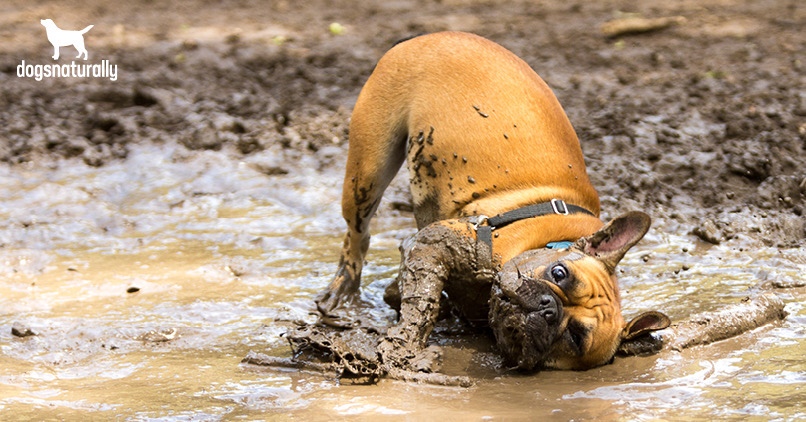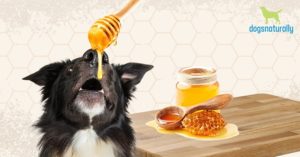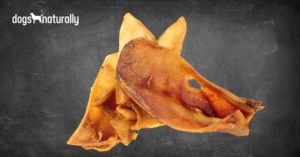Are you feeding your dog dirt yet? If not, you need to be.
Yes, you read that right … you need to be feeding your dog dirt.
Or more specifically, the rich levels of humic and fulvic acid within these soils.
Today I am going to tell you what exactly humic and fulvic acids are, where they come from and why your dog needs them.
Soil For Health And Healing
Did you know that healers have used soil to support good health for thousands of years?
One of the oldest soil remedies is shilajit. Ayurvedic practitioners have used it for more than 3000 years. And the Chinese have used peat on wounds since the 15th century.
Recently humic and fulvic acids are getting a lot of attention in conventional medicine too. Researchers are testing the ways healers have historically used them, such as:
- Treating wounds
- Relieving joint disease
- Aiding in digestion and gut health
- Providing energy and stamina
And they’re finding that ancient healers were right. These natural earth acids can heal and protect both humans and animals.
Because of its healing properties, fulvic acid is often added to antibacterial, anti-inflammatory and anti-tumor medications.
It’s why you find mud baths and clay therapies at many health spas.
So if you’re not yet reaching for soil-based products, you need to be.
Sources Of Humic And Fulvic Acid For Your Dog
Humic and fulvic acids come from soils with a high amount of decomposed organic matter. These soils contain matter from fruits, vegetables, and ancient seaweed.
What’s really interesting is that they can’t be reproduced in labs.
Studies have looked at their chemistry to better understand them … but it takes Mother Nature’s resources and time to create them.
Soil compositions can change and evolve as time passes. And this is why exact concentrations of these acids can vary and be hard to guarantee.
That’s why products that contain humic and fulvic acid will show an approximate level, rather than an exact concentration.
You can also find these acids within local vegetables that are grown in healthy soil … but it can be hard to find in good amounts.
That’s because over farming … as well as pesticides like Roundup … are robbing our soils of minerals. This leaves our crops with very low levels of minerals and acids.
And sadly our soils become more depleted each year.
Back in 1992, the Rio Earth Summit estimated that US and Canadian soils were depleted by 85%! So you can imagine how low the levels are now.
But organic vegetables grow in healthier soil. So by choosing organic vegetables you can boost your dog’s intake of these healing acids. Reach for these vegetables, which supply the most acids:
- Root vegetables: beetroots, carrots, turnips, parsnips, radishes, dandelion roots, ginger, turmeric, arrowroot, maca, any other edible roots
- Bulb vegetables: garlic
- Leafy green vegetables
You can also add supplements that contain humic and fulvic acids. Let’s talk about how they can help your dog.
Top Reasons To Add Humic And Fulvic Acid To Your Dog’s Diet
So now let’s focus now on why having these acids in your dog’s diet is important.
#1 Improves Gut Health And Digestion
Humic and fulvic acids can support gut health in several ways:
- Toxin removal
- Protecting nutrients
- Adding nutrients
Toxin Removal
Humic and fulvic acid provide excellent detoxification support for the body. They help to clear toxins and heavy metals quickly.
They’re also high in antioxidants. The antioxidants in humic and fulvic acids can help repair cell damage from toxins.
One of the most important toxins humic acid can remove is glyphosate.
Glyphosate is made to kill everything …
- Insects
- Bacteria
- Fungi
- Weeds
It kills by stopping a specific enzyme pathway known as the shikimate pathway. Glyphosate kills all plants and leaves insects in a state similar to AIDS patients.
Your dog doesn’t have a shikimate pathway … but the bacteria in her gut do. And glyphosate is deadly to these bacteria.
Glyphosate isn’t just a weed killer. Monsanto got it approved as an antibiotic. Like all antibiotics, it’ll wipe out the bad bacteria … but it’ll take out all the good guys too.

About 80% of your dog’s immune system starts in the gut. Good gut bacteria are the foundation of your dog’s health. So wiping out beneficial bacteria increases the risk of bacterial infections, viruses and chronic disease.
Humic acid can be a vital tool to keep glyphosate from destroying your dog’s gut health.
Humic acid can bind to glyphosate that may be hiding in your dog’s food … while it’s still in her stomach. So it gets rid of glyphosate before it reaches the bacteria that live in her intestines.
Humic acid also supports your dog’s gut health when …
- Your neighbors use pesticides or herbicides
- Your guests feed your dog at holiday events
- Your dog is a garbage thief
… Or anything that might cause digestive upset. It could prevent you from having a diarrhea mess on your hands!
RELATED: How To Stop Dog Diarrhea: 4 Simple Steps
Protecting Nutrients
Now for another problem with glyphosate …
… it binds to chelated minerals. This means it can rob your dog of nutrients like:
- Zinc
- Magnesium
- Cobalt
- Copper
- Calcium
So giving humic acid can help ensure your dog gets her nutrients.
RELATED: Feed Your Dog’s Microbiome (Not Just Your Dog)
Adding Nutrients
Humic and fulvic acids provide a wide range of nutrition support including:
- Trace minerals
- Amino acids
- Phytochemicals
- Enzymes
Fulvic acid also helps carry more nutrients to the body’s cells and balances their electrolyte levels. This provides your dog’s cells with the energy they need to use oxygen efficiently.
Which means she’ll have more energy and a stronger immune system. And this added energy allows her cells to fight against natural cell aging and damage.
#2 Provides Immune Support
A healthy dog is a happy dog. So you always want to do what you can to boost her immune system.
Fulvic acid is a great supplement to add to your rotation. That’s because it can modulate your dog’s immune system by regulating the amount of T cells and killer cells.
This ensures she has the right number of immune cells she needs to fight disease … and not an excess. Now, I know it may seem odd to not want extra immune cells …
… but too many killer cells in the body can lead to unwanted inflammation … like joint disease.
And studies are looking at how fulvic and humic acids can assist the body in manufacturing antibodies. So by giving these regularly, you’ll help your dog fight disease and build better immunity.
#3 Provide Skin Relief
Spa days with mud baths and clay masks aren’t just for us humans. They’re also valuable for your dog, as they provide trace amounts of humic and fulvic acids.
Humic and fulvic acids are natural:
- antibiotics
- anti-fungals
- anti-inflammatories
This makes them a great addition to your dog’s skincare routine, both internally and externally.
So if your dog has skin issues due to allergies, bug bites or seasonally dry skin you’ll want to add these acids to her diet.
Reach for topical preparations for spot healing of her skin issues. These clays offer relief … while the acids you feed work to restore her gut health. And once her immune system is strong, you shouldn’t need the topical treatments as often.
How To Give Humic And Fulvic Acid To Your Dog
Because these acids are naturally found in the soil, use these outdoor activities to increase her exposure:
- Swimming in the ocean, a natural lake, river or hot springs
- Hiking and walking through parks and green spaces
- Eating from the ground instead of a bowl
- Digging in the dirt
Or, give them internally. There are supplements that contain both humic and fulvic acids. Often they are in soil-based probiotic supplements.
But Remember …
You’ll need to be cautious when you first introduce humic and fulvic acid into your dog’s diet. The detoxification effects might loosen her stool for a few days.
So start with a low daily dose and adjust gradually. Normal stools will return as the acids promote the growth of beneficial gut bacteria … balancing the gut.
If you buy a product for dogs, follow the dosing instructions from the manufacturer … but again, start low and work up to a full dose.
If you buy a human product, assume it’s for a 150 lb person and adjust the dose based on your dog’s weight.
But check with your holistic vet if your dog has any thyroid concerns … because these acids can impact thyroid levels. So your dog may need a specific remedy plan alongside these supplements.
And if you’re mixing them into a paste to give orally or use topically make sure to use filtered water. Chlorine can interact with the acids and create compounds that can cause cancer.
So get out and about with your dog because you know she loves it. Embrace the mess and remember that a little dirt is good for your dog.













